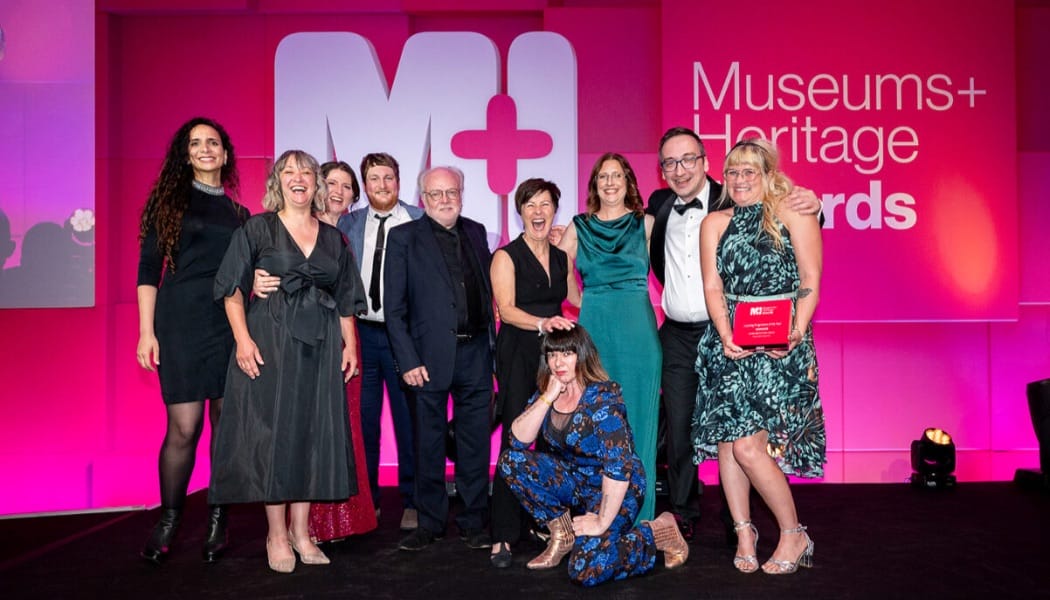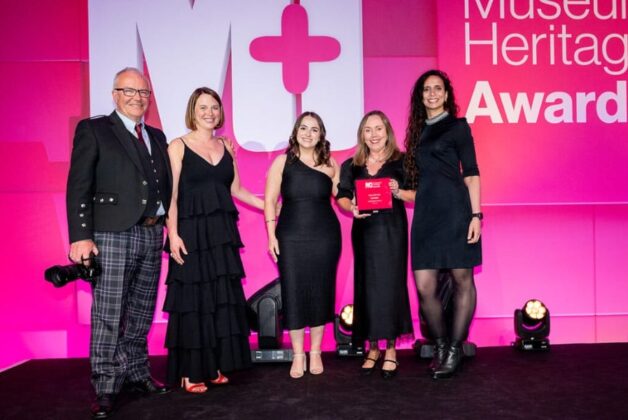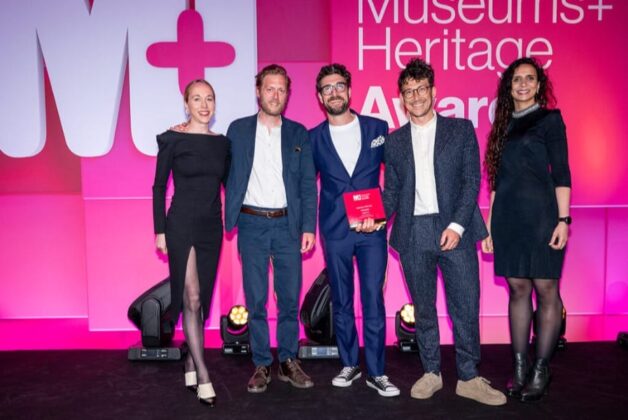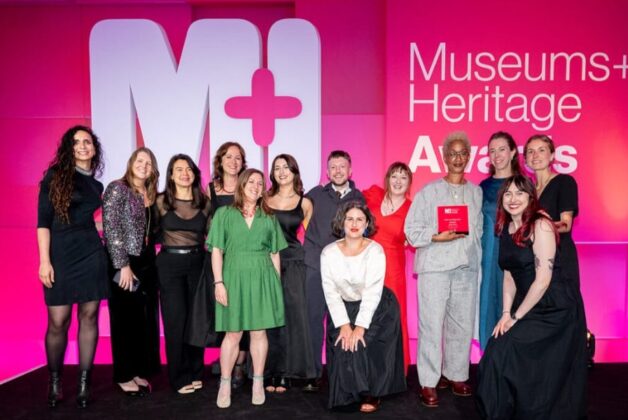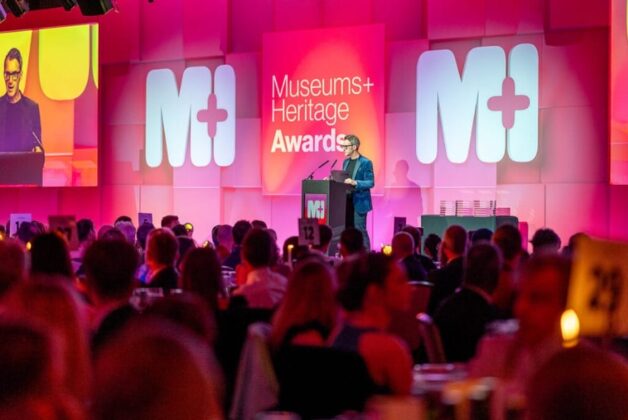Team behind award-winning SEND arts programme invited to House of Lords following Museums + Heritage Awards victory over major institutions.
When the team behind a learning programme at Attenborough Arts Centre was announced a winner at this year’s Museums + Heritage Awards, no one was more surprised than the team behind it.
The Awards ceremony took place in May 2025 in London, and saw the Leicester SENsory Atelier programme at Attenborough Arts Centre taking home an award.
Marianne Scahill-Pape, learning and outreach manager at Attenborough Arts Centre told Advisor that the day after the ceremony, “I took [the award] with me to Hyde Park. I sat in the sun with it, just looking at it, thinking ‘I can’t believe I’ve got this’”.
The project beat out competition from shortlistees including International Slavery Museum, Chatsworth House Trust, Historic Royal Palaces, Bletchley Park, Natural History Museum.
The programme has since gone from strength to strength; its team having since been invited to House of Lords.
Attenborough Arts Centre’s SENsory Atelier programme, funded by the Paul Hamlyn Foundation, uses arts and creativity to support disabled children and young people with special educational needs (SEND). The programme, which partners with 14 Leicestershire Special Schools, empowers teachers and collaborates with artists to provide inclusive arts experiences. The approach prioritises creativity and open-ended enquiry over formalised, result-based learning.
Scahill-Pape said: “Honestly, we didn’t expect to win. It’s such a prestigious cohort of institutions and our project is very much a pedagogical approach out in the community based in special schools.”
“It was wonderful to be able to take some of our teachers from special schools with us who’ve been on this journey with us for nearly ten years, and to share that moment with those incredible educational specialists”.
Lisa Jacques, SENsory Atelier programme manager agreed, telling Advisor: “We took joy in just being shortlisted, we thought ‘we will take that’. It was an absolute privilege just to be in that shortlist”.
The programme was described by the Museums + Heritage Awards’ independent judging panel as “an exemplary programme which combines pedagogical rigour with impressive breadth and depth of engagement”.
“It felt like it was like a peak career moment,” said Scahill-Pape on the project’s win. “It was completely unprecedented. We’ve won awards before, but nothing like this is like the ‘Oscars for our sector’.”
“We were invited to the House of Lords on Monday last week, so there’s many things that have come out of it that we’re still catching up with. It’s snowballing and we’re just delighted to be holding the flag for this work.”
Jacques added: “We couldn’t believe it, it was phenomenal”, adding “there’s a lot of good work that happens across the board, and sometimes the smaller institutions possibly don’t have as much capacity for advocacy, and so this for us is huge, to be selected and chosen.”
Since 2016, the project has placed artists directly into special educational needs classrooms across Leicestershire, using the Reggio Emilia pedagogical approach.
The approach began in the Italian city of Reggio Emilia after World War II, led by teacher Loris Malaguzzi and local parents. The approach takes a more child-centred approach, with discovery and expression considered a feature, rather than a bug. In this approach, learning unfolds through long-term, project-based exploration, strong family involvement, and carefully designed environments that serve as a ‘third teacher’.
Scahill-Pape explained: “Formal education can remove the right to learning for children, it squishes their natural communication. In special schools they use something called total communication, which means every movement, every gesture is them telling you something, telling you about their experience of being in the world.
“When we align those two things together; specialist education and the amazing approaches here in Leicester and the Reggio Emilia approach – bringing in artists, bringing in culture and exploring the environment as the third teacher – we’ve observed and been able to evidence the most incredible learning and development leaps.”
SEND space insight
Asked about insights which could help SEND approaches within the sector, Jacques said “Sensory backpacks are really great as an introduction and a ‘way in’, and it’s about what happens then, beyond that.
“It’s about permissions, and allowing that investigation and creativity, rather than palming someone off with a sensory bag – and they are good – but it’s what happens next. What can we allow within our spaces that will progress even more, encourage creativity and engagement with the space?”.
Scahill-Pape added of its own programme: “This isn’t about us putting out colouring-in pictures, or pre-made things. This is about connecting with the real world and real life objects… it’s a very outcomes-rich way of working but we don’t prescribe but the outcomes will be.”
Instead of tracking success via the materials created after a session, the programme has a group evaluation framework, which enables for the observation of every session to see how children interact with each other, how they interact with teachers and how they interact with artists and the environment, “to capture the moments of unexpected learning”.
The programme has created ‘live’ documents, updated every year, as a guide, including The Attenborough Art Centre’s SENsory atelier Group Evaluation Framework, authored by Jo Stockdale from Well within Reach, formerly the Child Learning & Development Advisory Centre (CLADAC).
The future of the programme
Alongside the award win, earlier this year the programme was awarded its third consecutive grant from Paul Hamlin Foundation, which has secured its delivery until 2028. It is taking part in international research projects. It is also expanding the programme in Leicester to engage more families and guardians and communities, and is currently setting up a partnership with Loughborough’s Charnwood Eco Hub, to create a more sustainable approach to accessing materials.
Jaques explained: “We’re forming the cohort of artists that have worked on the programme so that our schools have direct access to them, so when we’re looking at exit strategies, the schools will be able to operate without us being their broker.”
The programme is working with the Institute for Policy at the University of Leicester, which is creating a paper to disseminate to Westminster.
Jaques said in three years, the goal is to have “have an impact on policy” and make Leicestershire a centre for excellence for cultural education, having now worked with all eleven special schools in Leicester, alongside three more mainstream schools in the area.
Enter the Museums + Heritage Awards 2026
The Museums + Heritage Awards celebrate the very best in the world of museums, galleries and cultural and heritage visitor attractions.
Entries for the 2026 M+H Awards open this November. Sign up to our newsletter to be the first to hear when they do.
